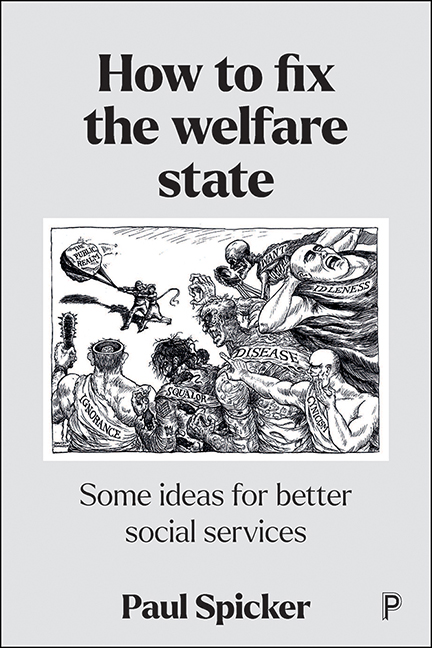Book contents
Summary
By contrast with the health service, social care has a much more residual focus, coupled with an individualist emphasis on independence, personal choice and commercialised services. The idea of ‘social care’, as we now understand the term, was hardly thought of at the time when the NHS was founded; ‘community care’ emerged as an issue in the 1960s, and social care has emerged as a major theme largely because of changes in other services. At the time of the welfare state's foundation, the main provision for frail older people or people with severe disabilities would have implied either long-stay hospital provision or residential care under Part III of the National Assistance Act, mainly provided by local authority Welfare Departments. The ‘personal social services’ – provision by Welfare, Health and Children's Departments – had only limited involvement with care in people's own homes, and in the case of Health and Welfare, that involvement was mainly linked to hospitals or day care. In the early 1960s there was an extension of two main types of domiciliary support, meals on wheels and home helps; depending on the area, there may also have been some day care provision. Home helps were provided through the Health Departments; meals on wheels and residential care were the responsibility of the Welfare Department. Occupational therapists worked in either service.
The new Social Services Departments (or Social Work Departments, in Scotland), formed from the three existing departments, were supposed to deliver adult social care, but this consistently received less attention and a lower priority than children's services. During the 1980s, central government opted to develop in particular the residential care sector, with a strong emphasis on private provision; the costs were paid as part of Supplementary Benefit. The result was a rapid expansion of private residential and nursing care, which went in about ten years from being on the margins of provision to equal the local authority sector in size.
The Griffiths report of 1988 proposed a rationalisation of a sort: that local authorities should be in charge of the service, that the money being provided by the social security system should go through local authorities instead, and that services should be provided by multiple providers and paid for by multiple purchasers.
- Type
- Chapter
- Information
- How to Fix the Welfare StateSome Ideas for Better Social Services, pp. 42 - 55Publisher: Bristol University PressPrint publication year: 2022

